Is becoming a pilot worth the cost? For me, the answer will always be “yes!”, but for many, the answer may be “no”. Let me explain.
Becoming a professional pilot is extremely time-consuming, costly and challenging, but it is also incredibly rewarding, so it’s not surprising so many student aviators wonder whether becoming a pilot is worth it. When you realize what’s ahead before you to get your wings, with a looooong period of training, huge personal cost, and hear about some of the limited job opportunities, it’s enough to make anyone question their career choices. So, is becoming a pilot worth the cost??
The good:
- The moments of sheer exhilaration and adrenaline you get while flying
- The pride and admiration from the wider community towards pilots, which is apparently one of the world’s most respected professions.
- The above-average income (once you’re a first officer or co-pilot)
- The exclusive professional community you become a part of
- Seeing some amazing cities and locations you’d never visit on your own dime.
The bad:
- The extreme costs involved in your training, which can be as much as $100k if you’re self-funded, just to get your commercial pilot license
- The tough job prospects and low pay for graduate pilots
- The intense physically and psychologically challenging training
- Believe it or not, but the constant travel starts to wear you down into a routine of land the aircraft > tedious paperwork > transport > hotel > wake up > start again…
Verdict: If you’re eager to fly even after getting your PPL (Private Pilot License), you’re truly passionate. But if flying feels like a drag within your first 20 hours, consider another career.
This website is reader-supported, which means we may be paid when you visit links to partner or featured sites, or by advertising on the site. For more information please read our Privacy Policy and Terms of Use
Is becoming a Pilot worth it for you?
The truth is that a lot of people want to become a pilot for the wrong reasons (which I’ll go into further on). This makes the profession more competitive, resulting in many pilots who should have chosen another career but have spent too much money on their training to re-skill and are jaded about being in a job they can’t stand.
So the real question is whether becoming a pilot is worth it for you, and I’m going to try really hard to help you work this out. If becoming a pilot is not worth it for you, you might as well save yourself over one hundred thousand dollars and years worth of training, and just do some joy flights every now and then or get your recreational license and pursue a different career. This will do the small few who really do want to become a pilot a favor by reducing the glut of competition in the industry, and might even ease some of the exorbitant costs of training.
Lots of people want to become a pilot, and it’s easy to see why: watching a stunt pilot do tricks in the air and seeing the awesome view out of your window in a passenger jet is pretty alluring. On top of that, we have a string of Hollywood movies showing how awesome you’ll be by becoming a pilot.
The only problem is that you don’t see the monumental amount of effort and cash it takes to actually become a professional pilot. Becoming a pilot is a herculean task, which allegedly 80% of people abandon, but then again, nothing worth doing is easy. But once people start to see the size of the journey ahead in becoming a pilot, many start to lose their resolve.
- Ideal for Airline and Charter Pilots
- Be organized for that next checkride, jumpseat and linecheck...
- Never wonder where your put your documents again.
Becoming a Pilot – The Good Parts
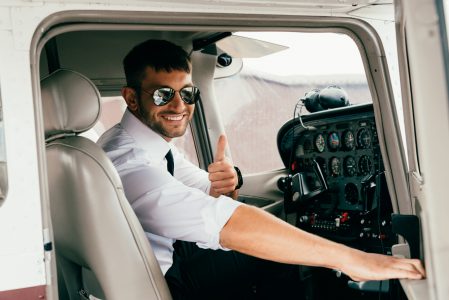
Let’s start on what you’ve got to look forward to, and why I love being a pilot (despite some of the challenges!).
I wear my uniform with pride, and every time I advance those throttles to thunder down the runway and rotate into the sky, I am positively buzzing with excitement. Nothing in life can come close to that feeling, and it’s something I look forward to every day. Working as a pilot can be tough, but it is a job you can wake up and smile every morning knowing that you are making a difference in the world, whilst having the absolute time of your life.
Pilots are people that connect the world; Airline pilots make travel possible for families to connect all around the world. Medivac and rescue pilots save lives, air ambulances transport critical patients and allow remote patients to access city healthcare. Our freight dogs and cargo pilots deliver your Amazon and eBay purchases, and deliver your letters around the world.
Our military pilots defend our skies and protect our way of life from those who might seek to harm us. Our General Aviation pilots provide an array of commercial services, ranging from everything from tours and pleasure flights, right through to geomagnetic mining survey and bush-fire spotting and fire fighting operations.
Wearing a set of wings welcomes you into a highly professional and tight-knit community of aviators, and you should be incredibly proud to fly amongst them, along airways forged by our fore-bearing pioneers like Sir George Cayley, the Wright brothers, Charles Lindbergh and Amelia Earhart.
I don’t think there are too many other professions that can give you the personal sense of achievement as aviation, or the exclusive, hard-earned qualifications we all have.
However, there are many challenges that will test you if your heart really isn’t in aviation or you’re wanting to become a pilot for the wrong reasons, let’s go through some of them.
How much does it cost to become a pilot?
A basic commercial pilot license can cost anywhere around $100,000 – 200,000, although there are a number of airlines that pay for pilot training cadetships, and offer scholarships. A qualified commercial airline pilot with bare-bones minimum hours (~200) will then have a very hard time getting a job. To make yourself attractive for anything above entry-level sightseeing and tourist joy flights, you will need specialist training.
The cost of specialist training, ratings and endorsements can quickly add up. Whilst some lucky pilots to-be may snag cadetships and other employment packages which include training, the vast majority will end up out of pocket for such activities.
Specialist training such as multi-engine training and command instrument ratings can eclipse even the cost of the initial basic license, and type conversions on transport category aircraft, such as a Boeing 737, can exceed $50,000.
Personally, I have spent over $300,000 on aviation training activities. I have divorced myself from thinking of cost in isolation, as many of these training courses have been crucial to my success in the industry. Training has also given me a robust and broad set of skills that have safeguarded me, enabling me to survive multiple emergencies – for example a complete loss of power on take-off resulting in a safe off-field landing.
- Federal Aviation Administration (Author)
- English (Publication Language)
- 405 Pages - 11/30/2021 (Publication Date) - Independently...
How long does it take to become a pilot?
It has taken me over a decade in the workforce to establish myself as a professional pilot. It is a lifelong learning endeavor and you simply don’t stop learning. This takes up time, and on average when I was a qualified pilot working full time, I worked 10-12 hour days, 6 days a week.
Like any career, with seniority comes greater choice on flexible work hours, and I know many pilots who work reduced hours. But for now, I am happy to keep flying and learning as much as I can.
During training, my workload was even higher. I sacrificed my weekends and downtime, nights out with family and friends, and a lot of recreation activities so that I could concentrate on my studies. I also spent a lot of time working extra jobs to try and afford all my flight lessons.
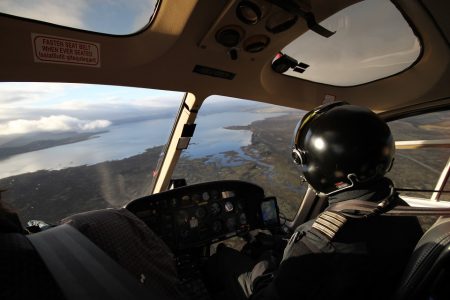
I would hang around the local airport, with my books, soaking up as much as I could whilst I prepared for my exams and flights. Flight training is something you need to be totally immersed in – live, speak and breath aviation. The pilot fraternity is notoriously close, and spending time with like-minded individuals is essential to doing well, and networking is critical to landing that good job at the end of the training process.
Not to mention, the actual flights can take a long time, as well as the commute to and from the airport. One of the schools I trained at was a 2-hour drive from where I lived – there just weren’t any nearby schools. So I would make a weekend of it. I was lucky as I had a pretty amazing instructor who actually had an airstrip at his hobby farm – in order to get two good days of flight training in, at the end of the first day we would fly to his farm and I would stay in his guest quarters.
How hard is it to become a pilot?
Let alone the cost and time, there is substantial effort required in becoming a professional airline pilot. And let’s be realistic – it’s not something everyone can do. There are rigorous medical screening requirements, even for recreational and private pilots; commercial pilots holding a grade one aviation medical are very closely scrutinized.
Then there are the exams. I have sat over 50 theoretical ground exams during my career. These spanned from Basic Aeronautical Knowledge to Principles and Methods of Instruction, Instrument Rating examinations through to Airline Transport Pilot Aeroplane Flight Planning and Helicopter Aerodynamics.
Personally, I enjoy the academic side of pilot training, I’ve also completed a bachelor’s and a master’s college degree in aeronautical and space engineering, so the knowledge requirements have never been a chore for me.
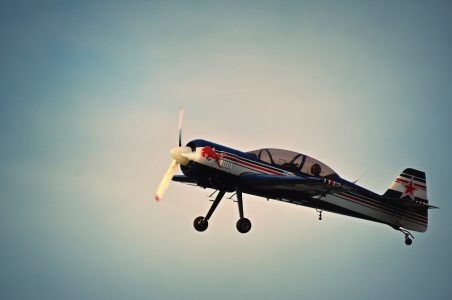
The exams for pilot training aren’t easy. They are incredibly challenging, complex exams requiring dedication and a lot of time to study, designed to ensure you have the ‘Right Stuff’ to be a pilot and progress to become an airline Captain. There are some amazing people out there who offer training and coaching, but these services are typically very expensive.
As difficult as the ground theory lessons and exams are, the flight training can be exceptionally challenging at times. Many student pilots struggle initially with certain concepts, and fight airsickness whilst learning to multi-task and prioritize in accordance with the law of flying: Aviate – Navigate – Communicate – Administrate!
Initial lessons teach would-be pilots about the basic tenants of how to handle an aircraft; the effects of controls, how to trim in straight and level flight, climbing, descending, turning and even aerodynamic stalling (and recovering!) of the aircraft. These progress into how to land and take-off safely, and handle basic emergencies such as engine failures or loss of electrics or flight control services. This culminates in a solo flight where pilots ditch their flight instructors to take a hot lap – a very emotionally charged and adrenaline-inducing flight.
Mastering these basics is difficult, but achievable with a very high level of effort and hard work on behalf of the student. Practicing constantly, memorizing limits, pretending to talk on the radio and visualizing attitudes and flying sequences.
This progresses into much more difficult (but equally as rewarding) sequences such as navigation exercises, advanced stalling and further emergencies such as practice forced landings and other emergency precautionary landings. When seeking upgrading classes of licenses, pilots are expected to conform to ever-tightening accuracy tolerances. They are subject to more critical and in-depth compound emergencies under significant time pressure requiring a mastery of the basics and standard operating procedures, whilst including a level of lateral thinking to solve problems.
Overall, an extremely high level of effort is required to succeed in becoming a pilot, and it requires a fit and healthy individual with a robust capacity and ability to deal with high levels of stress and time pressure.
No products found.
The opportunity costs
The cost, time and effort you spend training to become a pilot also have a significant opportunity cost to you as well, that is, you won’t be able to do other things. You have to prioritize your goals, and the fact is that pursuing a career in aviation may mean that you won’t be able to have one in medicine or go on to become a professional sportsman or woman.
Whilst nothing is impossible, it’s best to set realistic goals, and the simple fact is you need to sacrifice quite a lot to become a successful pilot.
Does flying ever become boring?
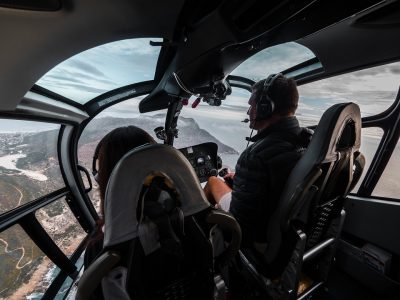
Turning something you really enjoy as a hobby into your full-time career can sometimes suck the fun out of it. For example, when I come home from a long period away from work, the last thing my colleagues want to do is jump into the cockpit of an aerobatic trainer with me for some hot laps.
For some reason, I can’t get enough of flying (perhaps I am wired a little differently to my peers?), but nonetheless, you should consider whether you really want to pursue becoming a professional pilot or whether it is really just a fun hobby you enjoy – because you might find you don’t enjoy it anymore if you’re forced to do it day in, day out, in less than ideal working conditions.
What are your intentions?
Many people get into the aviation industry for the wrong reasons. When I asked around, these are some of the answers I got for why people might become commercial pilots;
- For the prestige (career goals)
- Because I am good at it
- To get paid well
- To travel the world
- Because flying is my passion
- To get out of my small home town
- To join a major airline
- Because it’s fun
- To impress a girl
- Because I didn’t want to get a real job
It’s clear that people have a variety of motivations to become a pilot, but it’s equally as clear that having solid motivation is critical. If not, you might find yourself halfway through the process, drowning in bills and preparing for exams at home again on a Saturday night when all your friends are out at a bar, asking yourself “Why am I doing this!” A lot of people drop out of pilot training, and with the high costs involved, it’s a massive disappointment.
- Hardcover Book
- DK (Author)
- English (Publication Language)
Ways to afford pilot training
Most people either save up from working their job, or take out student loans to pay for their flight training. Whilst scholarships are a great option, and some airlines pay for pilot training (as well as other organizations like the military), they can be highly competitive positions and there are strings attached, such as employment contracts (which might prevent you from leaving to get a better job) – so actually – most people pay for pilot training themselves.
One way you could consider paying for your pilot training is to run a scalable, semi-passive online business like a content website (Just like what you are reading on here at ProAviationTips). This is actually how I retired from full-time flying operations with the military, and now I only fly part-time (instructing when I want to) as I don’t rely on my flying income to cover my living costs.

I think it’s definitely worth considering how you could start a side hustle such as a blog and scale this to cover the cost of your flight training. I did the Web Dev course and then the Digital Investors course with the eBusiness Institute along with one of my other squadron buddies, and we have both been able to build thriving online businesses as a result. I wrote up a pretty comprehensive review of the eBusiness Institute detailing my experiences.
Conclusion
If reading about the costs involved, the time, and the effort hasn’t deterred you, and you have a burning desire to become a pilot that will see you through the challenging times, then becoming a pilot might be worth it for you. Like I said at the beginning, if you can wait to jump into the plane and fly every single time at the start of your flying journey, then becoming a pilot is probably for you, and the rewards will outweigh the costs.
Becoming a pilot has been the most rewarding experience of my life, but it was extremely tough for many years during training. As a professional pilot, it is still a tough environment to work in, but it is also a career I thoroughly enjoy.
Would I do it all again if I had the chance? In a heartbeat! Whilst I really enjoyed my military career, it was a welcome change of pace now to now be working part-time as a flying instructor and running ProAviationtips.com thanks to learning about online business with the eBusiness institute.
Just make sure you are doing it for the right reasons, that you understand the effort required and that you are ready to commit to the herculean effort and ongoing responsibility that becoming a pilot requires. Once you are qualified, that is just the start of a process of life-long learning and examination – you have a responsibility to every one of your passengers to be on your game, every flight! And don’t forget; there are airlines that pay for pilot training too!
Quoting a friend who is a long haul pilot for Qantas airlines:
“Becoming a pilot is a difficult way to earn a good living”
Are you a commercial pilot? Would you do it all again? Let us know in the comments below.





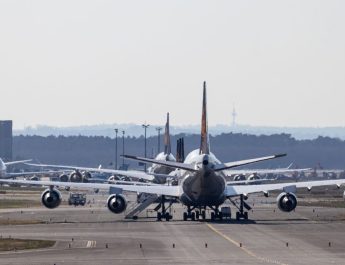
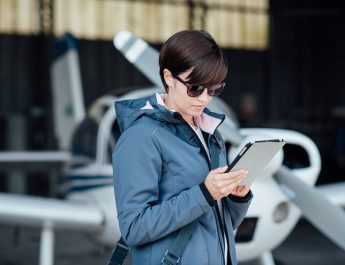

I started out training to become a pilot but I failed my commercial flight test twice and it’s just really shaken my confidence. I haven’t really got the money to keep going so I’m still working in hospitality and saving, I’ll probably have another go next year but I already feel like I’m so uncurrent it would be like having to start all over again, and I don’t know if it’s even worth it to be paid less than what I earn now…
I fly for a regional airline and it’s a very comfortable lifestyle. I’ll be looking at mainline probably in a few years. I did an aviation degree so my licence was included in that cost and I do have student loans I am paying off. My friends who went ‘direct’ to flying with no degree are already starting to go mainline as FO’s so if I had my time again I’d probably do that as the pay is quite a bit higher and quicker progression, a degree isn’t really necessary I just didn’t have the money for training upfront
Hi Metro! Very interesting comment about the degree vs no degree issue. Its a question that comes up a lot, and often I think students are more interested in the ability to use student loans to cover the cost of a commercial pilots licence as it is linked to the degree, rather than the degree itself. I agree though that there is no requirement for pilots to have a degree and skipping that can let you focus on flying and allow you to progress quicker. Food for thought! thanks
Thanks for the information on the costs of becoming a pilot and the type of exams and flying lessons that are required. If someone wants to become a pilot, it would probably be a good idea to start research flight schools. This way, they could figure out which one can help them learn the type of flying skills and experience they need.
Hi Erika, great comment! Researching flying schools is very important. I remember agonising about where I should learn, and whether I should learn in GA or ultralight/sport aircraft first. I’m glad I spent so long researching, and actually flew with a number of schools before I settled into one I liked with a really experienced instructor. Maybe we should write an article on how to choose a flying school? What do you think?
Great read! To be quick of my question, would you recommend ATP for my training and future for commercial aviation? Thanks so much!
Hi Chase. It depends on your personal goals. If you are wishing to progress into an airline or regular passenger transport service regulated carrier then yes I think getting an Airline Transport Pilot Licence (ATPL) exams completed is a good idea. Most pilots would benefit from having some level of training before this, and I would recommend a Private Pilot Licence before attempting this level of study
Awesome article! For some reason, I woke up today with the realization that I need to learn how to fly. I’ve always been fascinated by it, and when I was a child I had all kinds of books about aviation, because I was obsessed. I never really considered making it into a career, and flying for a big airline sounds stressful. Next week I am going to a local flight school to take a test ride and see if it is indeed something that I am passionate about. I wonder if there are any career opportunities that easier to obtain than a big airline job. I live in Louisiana and I don’t need to make much money to live comfortably here.
As an ex-Cathay Pacific captain, with 15 years based in Hong Kong I really enjoyed flying around the world. It all changes though once you have a family to consider, as long haul flights means being away from home a lot, and arriving home very tired.
So, my advice is enjoy the long haul flights while you can, but nothing beats being home every night with your family, making memories together, and watching the kids grow up.
Words very well said Brad, thanks for sharing your experience. I completely agree!
Thanks for helping me understand how becoming a pilot allows you to work with an airline that flies to different places! My brother is interested in pursuing a career that gives him the freedom to travel. I should talk to him about trying this out by finding a flight training academy!